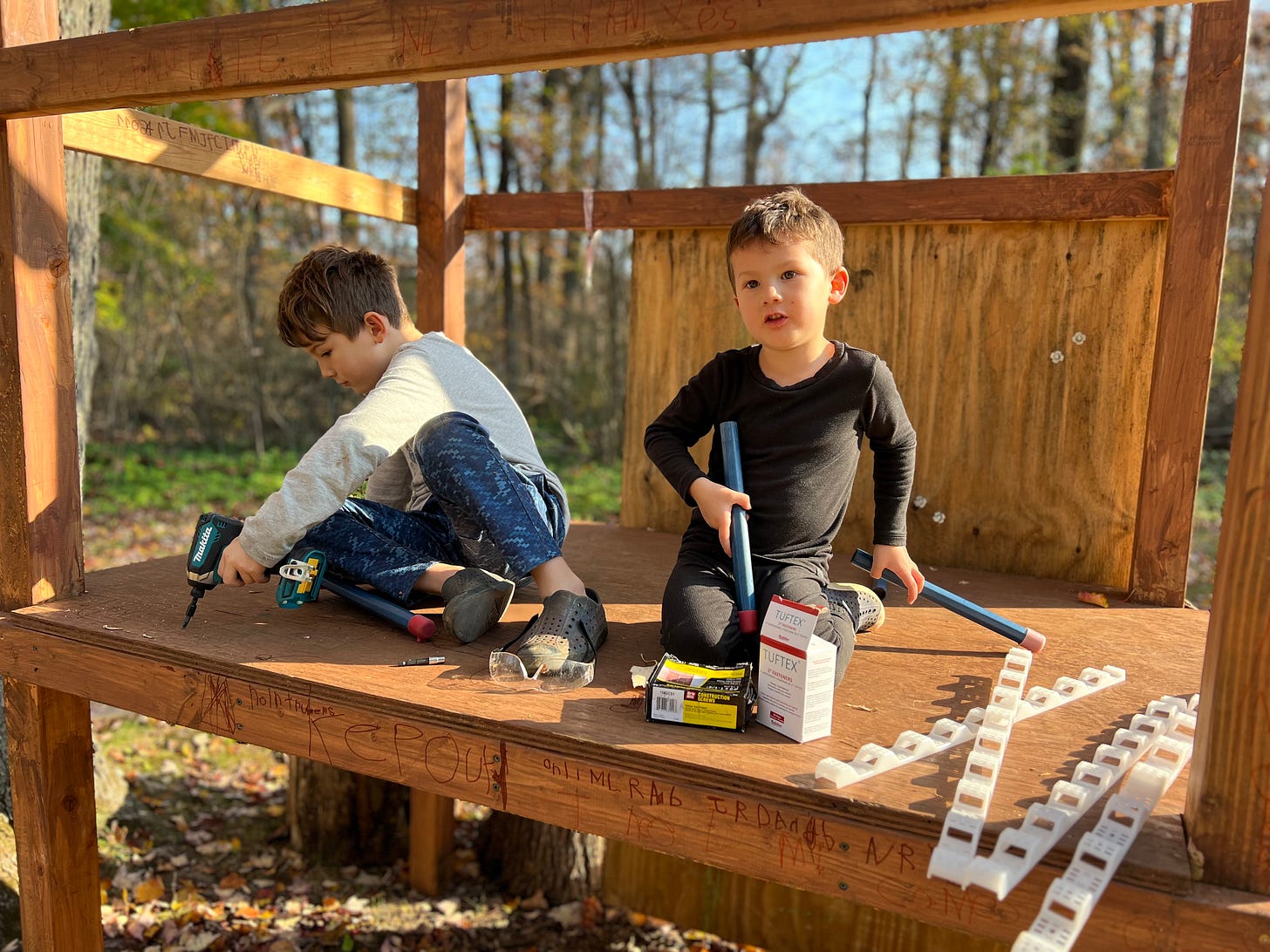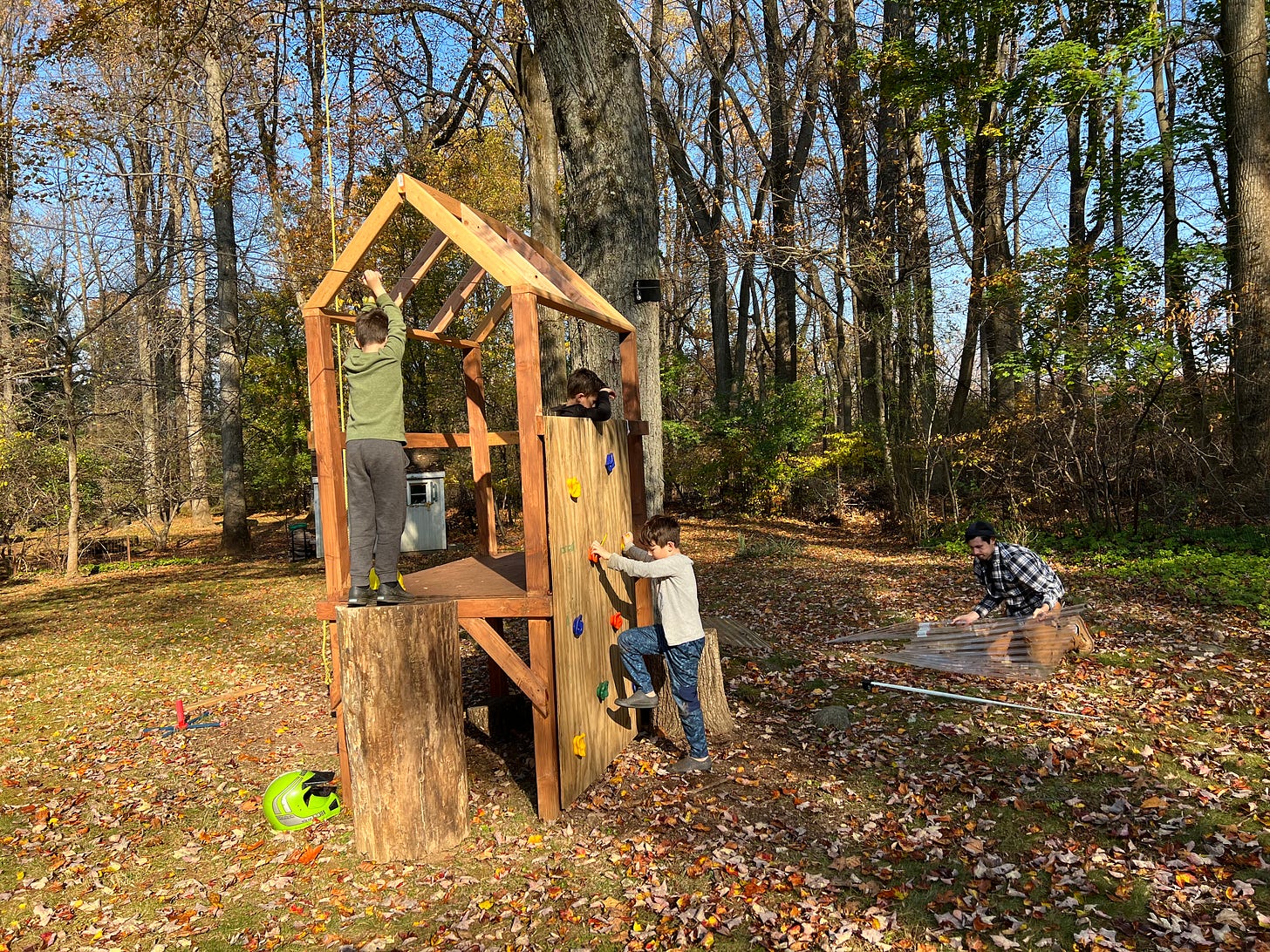Kids home for the summer? Ditch the books.
Why all that summer play sparks a child's neuroplasticity and benefits a child's mind better than any summer curriculum
The bucket of chitted potatoes swung from my preschooler’s arm as he handed them out to his brothers and friends. One dug, one planted, one used a stick to distance the sprouts, one covered them back up with dirt, and then they began the process again. My heart warmed as I looked out at this county commissioned farm we had visited so often during his first years of life, before the schools had opened back up. But seeing the many older city kids tilling alongside him snapped me back to thoughts of my own summers and the academic catch-up my mom always played with me. After a sorely needed full school year of letters and numbers, would it be okay to let him and his brothers go back to play mode this summer?
In camp or at home with Dad, with the babysitter or at Papa and Grandma’s, should I be grabbing them a bunch of gardening tools or a bunch of workbooks? How best to use the break?
If I paid attention to my kids’ report cards, I might feel pressured to go with the books. Their teachers have worked hard to bring them up to grade level all year, and I feel some responsibility to maintain the progress. At the same time, as a researcher who studies intelligence and learning, I have to look at it scientifically.
My research tells me that the upward trend is made possible by the foundation that we set through all their prior focus on play. Play strengthens their ability to learn.
While it may seem counterintuitive, research into literacy and educational outcomes tells us that play-based learning is more effective than book-learning for young kids (what experts these days often pejoratively call “teaching to the test”). Play-based learning imbues language arts and mathematics in subtle ways. Counting seedlings becomes a lesson in addition and subtraction. Labeling fields and storehouses becomes a lesson in reading and writing. Learning is contextualized in the real world, where young kids so desperately want to belong.
Play-based learning also offers kids complex opportunities for making mistakes. Mistakes tell kids that they have reached the boundaries of what they know. They are like a neon sign with a big arrow saying, “Learn more here!”
Brain scanning studies show that brains that learn how to recognize errors early on grow to improve their error-recognition. They become little sign-making factories that constantly alert a child to the opportunities in their environment to learn more.
But play-based learning’s true power is in its social-emotional benefits. The interaction of play between children helps cement knowledge by combining memory and comprehension with feeling. Research into brain development shows that social interaction and the feelings that come with it are essential to growing our brains. This kind of learning is what enables babies’ brains to be so plastic. They are flexible in a way that allows them to build new brain matter while developing what’s already there in the most generative ways.
It is no secret that the countries in the world that have the longest play-based public education curriculum have the highest literacy rates and happiness rates. Countries like Finland and Denmark treat early elementary education like one long Summer Break, and as a result their kids have a solid foundation for book-learning as school unfolds.
My research similarly shows us that human intelligence is plastic and best supported by social connection. So instead of seeing our intelligence and that of our kids as fixed in quantity or ability and individualized, we want to see it as adaptable and social. Play-based learning does this by developing in our children a sense of belonging and purpose in the real world, by helping children to recognize the mistakes and possibilities for going beyond them, and by allowing them to connect to others and to information with feeling and heart.
Summer break can be the best version of that when we let them play. For kids, it can be a break from more isolated and test-based book learning, and a break into a more real-life, community-based, playful learning. For parents, it can be a break from lawnmower parenting, and a break into permissive, intuitive parenting.
Kids need to learn from each other how to draw knowledge from their environments, whether that environment is a field or a court, a rooftop or a county park. They also need to develop the awareness that they are a meaningful part of this world, and that their exploration and creativity is essential to it.
Ultimately, we want to teach our kids to be a part of society, not apart from it. So instead of worrying about my kids falling behind—sweating what they “should” think versus learning with each other exactly how—I’ve decided to see summer as an opportunity for them to grow in different ways. I’m choosing to lean into play.





